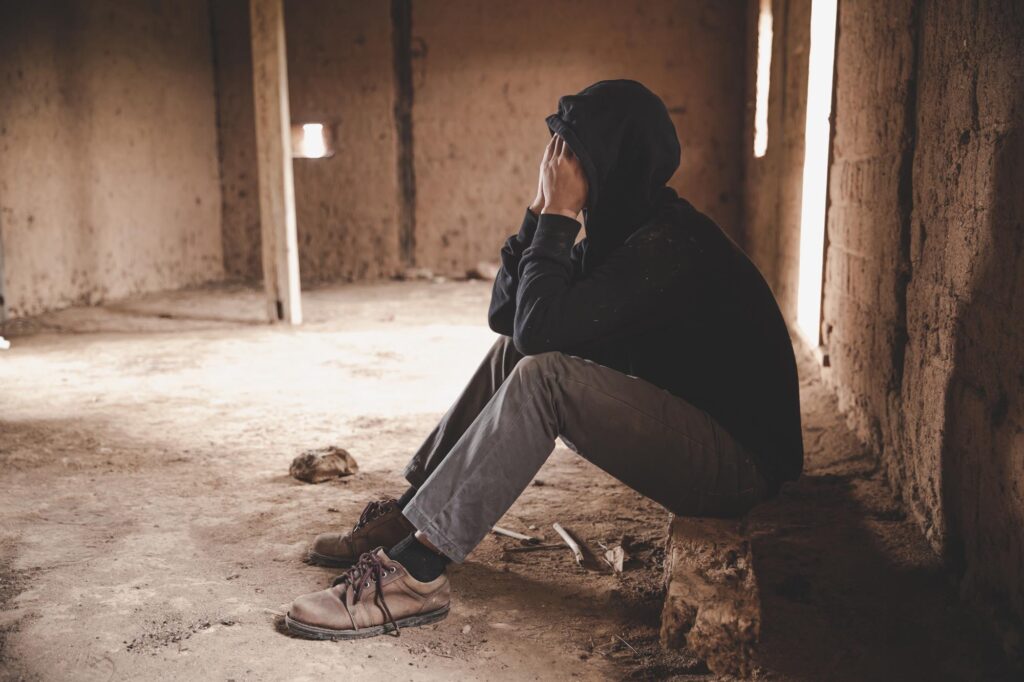Reaching out for addiction help takes extraordinary strength. If you’re reading this first-timer’s guide, you’ve already taken a brave step toward reclaiming your life. That courage deserves recognition, because acknowledging the need for support is often the hardest part of the recovery journey.
Substance use disorder is a chronic brain disease that reshapes how we think, feel, and behave. It doesn’t reflect weakness or moral failing—it’s a medical condition that affects neural pathways, making it increasingly difficult to control impulses despite harmful consequences. Left unaddressed, addiction creates ripples that extend far beyond the individual, straining relationships with loved ones, compromising professional opportunities, and diminishing overall quality of life.
Understanding your treatment options and what lies ahead can transform anxiety into empowerment. This guide walks you through essential aspects of seeking help—from recognizing addiction’s signs to navigating treatment programs, preparing for your first experience in rehab, and building a sustainable path toward lasting sobriety. You don’t have to walk this path alone.
Understanding Addiction and Its Impact

Addiction is a chronic brain disease that fundamentally changes the neural pathways responsible for reward, motivation, and memory. When substances or behaviors repeatedly activate the brain’s pleasure centers, they create powerful associations that override rational decision-making. This neurological shift explains why someone seeking addiction help often struggles to stop despite devastating consequences—their brain has been rewired to prioritize the addictive substance above all else.
Signs of Addiction
The visible signs of addiction often appear long before someone realizes they need treatment:
- Social withdrawal from family gatherings, friendships, and previously enjoyed activities
- Unpredictable mood swings ranging from euphoria to irritability and depression
- Deteriorating relationships marked by broken trust, frequent conflicts, and emotional distance
- Declining performance at work or school, accompanied by missed obligations
Risk Factors for Addiction
Multiple risk factors come together to make certain individuals more vulnerable to addiction:
- Genetic predisposition accounts for approximately 40-60% of addiction risk
- Co-occurring mental health conditions like anxiety, depression, or trauma create additional vulnerability
- Environmental influences—including early exposure to substances, peer pressure, and chronic stress—complete this complex picture of how addiction takes hold
Preparing for Your First Addiction Treatment Experience
Seeking addiction help begins with an honest acknowledgment of where you are in your journey. Self-acceptance doesn’t mean approving of past behaviors—it means recognizing your inherent worth and your capacity for transformation. This internal readiness creates the foundation for meaningful change.
Understanding the Role of Professional Assessments
Professional assessments serve as your compass through the treatment landscape. Qualified clinicians evaluate the severity of your addiction, co-occurring mental health conditions, physical health status, and personal circumstances. These comprehensive evaluations ensure you receive care tailored to your specific needs rather than a one-size-fits-all approach.
Setting Realistic Expectations for Recovery
Realistic expectations protect your recovery:
- Treatment unfolds gradually, not overnight
- Discomfort during early stages signals healing, not failure
- Progress follows a unique timeline for each person
- Setbacks can become valuable learning opportunities
Understanding that recovery is a process rather than a destination allows you to approach treatment with patience and self-compassion. The path ahead requires commitment, but you don’t walk it alone.
Exploring Addiction Treatment Programs and Levels of Care
Understanding the different types of addiction help available can empower you to make informed decisions about your recovery path. Treatment exists on a continuum, with each level designed to meet specific needs and circumstances.
Outpatient Services
Outpatient services allow you to live at home while attending scheduled therapy sessions. This option is ideal for those with strong support systems and less severe addiction.
Intensive Outpatient Programs (IOP) and Partial Hospitalization Programs (PHP)
Intensive outpatient programs (IOP) and partial hospitalization programs (PHP) require more frequent attendance—typically several hours daily—while still permitting you to maintain certain responsibilities.
Residential Treatment
Residential treatment provides 24-hour care in a structured, supportive environment away from triggers and stressors. This immersive approach creates space for deep healing and skill-building.
Medically Managed Inpatient Care
Medically managed inpatient care offers the highest level of supervision for those requiring constant medical monitoring due to severe withdrawal risks or co-occurring health conditions.
Detoxification Services
Detoxification services often serve as the essential foundation of recovery, safely managing withdrawal symptoms under medical supervision. This process clears substances from your body while protecting your physical and emotional well-being.
Selecting the right program depends on your unique situation—the severity of your addiction, your home environment, work obligations, and personal comfort with different settings all play vital roles in this decision.
The Role of Evidence-Based Practices and Medications in Recovery
Effective addiction help combines proven therapeutic approaches with medical support tailored to your unique needs. The foundation of quality treatment rests on evidence-based practices that have demonstrated success across diverse populations.
Counseling therapies form the heart of integrated treatment:
- Individual therapy provides a confidential space to explore personal triggers, develop coping strategies, and address trauma or underlying mental health conditions
- Group therapy creates connection with peers who understand your journey, reducing isolation while building accountability
- Family therapy repairs damaged relationships and educates loved ones about addiction as a disease, strengthening your support network
Qualified medical professionals assess your specific situation to create personalized medication plans, monitoring your response and adjusting dosages as needed. This individualized approach ensures you receive the right combination of therapeutic and medical interventions to support lasting recovery.
Family Involvement and Support Systems in Addiction Recovery
Recovery from addiction rarely happens alone. When families actively participate in the treatment process, individuals seeking addiction help experience significantly improved outcomes and sustained emotional stability. Family therapy sessions create opportunities to heal broken relationships, establish healthy communication patterns, and build a network of understanding that extends beyond the treatment facility walls.
The Importance of Continuing Care and Aftercare Planning
Continuing care and aftercare planning are crucial links between structured treatment and independent living. These comprehensive plans include:
- Regular check-ins with counselors and support groups
- Relapse prevention strategies tailored to individual triggers
- Access to community resources and sober living environments
- Ongoing family education and involvement
The Role of Treatment Centers in Patient Retention
Patient retention thrives when treatment centers foster genuine connection and accountability. At facilities that prioritize personalized care, individuals feel seen and valued rather than processed through a system. This sense of belonging—combined with family support and structured aftercare—creates the foundation for lasting sobriety.
The journey becomes less daunting when you know a dedicated team and loving family members stand ready to support each step forward.
Ensuring Quality Care Through Accreditation and Insurance Coverage
Selecting the right facility for addiction help requires careful consideration of credentials and financial accessibility. Accreditation from respected organizations like the Joint Commission on Accreditation of Healthcare Organizations (JCAHO) or the Commission on Accreditation of Rehabilitation Facilities (CARF) serves as a reliable indicator of quality care standards. These certifications demonstrate that a treatment center meets rigorous requirements for safety protocols, evidence-based practices, and ethical treatment approaches.
Understanding your insurance coverage can remove significant barriers to accessing treatment. Most major insurance plans provide some level of coverage for addiction services:
- PPO plans typically offer flexibility in choosing providers with both in-network and out-of-network options
- HMO plans require referrals but often provide comprehensive coverage within their network
- EPO plans combine elements of both, offering cost-effective care through designated providers
At Magnolia Ranch Recovery, we work directly with insurance providers to verify your benefits and clarify coverage details. Our team handles the verification process, allowing you to focus on preparing for your healing journey rather than navigating complex insurance terminology. Verify your insurance today!
Overcoming Common Challenges Faced by First-Timers in Rehab
Seeking addiction help for the first time brings natural uncertainties and obstacles that many people experience. The early days of treatment often involve physical discomfort as your body adjusts to sobriety, alongside emotional waves of anxiety, shame, or vulnerability. These sensations are part of the healing process, not signs of failure.
Recognizing Relapse Warning Signs
Recognizing relapse warning signs—such as romanticizing past substance use, isolating from support systems, or skipping therapy sessions—empowers you to address concerns before they escalate. When these thoughts arise, reach out to your treatment team immediately rather than waiting until the urge intensifies.
Your Recovery Journey Belongs to You Alone
Your recovery journey belongs to you alone. Comparing your progress with others in treatment can undermine your confidence and distract from your personal growth. Each person arrives with different histories, substances, and timelines.
Honesty is Key
Honesty with your providers about cravings, doubts, or setbacks creates the foundation for effective addiction help. The therapeutic relationship thrives on transparency, allowing your care team to adjust your treatment plan and provide the specific support you need during vulnerable moments.
How Magnolia Ranch Recovery Supports Your Journey to Sobriety
Located in the serene landscapes of Tennessee, Magnolia Ranch Recovery offers addiction help in a private and secluded environment. Here, healing becomes possible away from the stresses and triggers of everyday life. The peaceful surroundings naturally encourage self-reflection and genuine transformation.
A Holistic Approach to Treatment
Our specialized dual diagnosis approach understands that addiction often coexists with other mental health conditions. Instead of treating these issues separately, we focus on the whole person by addressing both addiction and underlying mental health conditions such as depression, anxiety, trauma, or other core problems. This integrated method breaks the cycle of treating one condition while ignoring another, leading to more effective recovery.
Comprehensive Care for Lasting Change
The journey to sobriety begins with medically supervised detoxification, where safety and comfort during withdrawal are prioritized. Following this, clients participate in various therapeutic modalities tailored to their specific needs:
- Individual counseling sessions with dedicated therapists
- Group therapy sessions that promote peer connection and shared wisdom
- Family therapy sessions aimed at rebuilding trust and improving communication patterns
- Evidence-based treatments that target specific addiction patterns
Our intentionally low client-to-therapist ratio ensures that each individual receives personalized attention throughout their treatment process. Additionally, we recognize the importance of aftercare in maintaining long-term sobriety. That’s why we have robust aftercare planning in place to provide ongoing support even after completing residential treatment.
At Magnolia Ranch Recovery, we believe that true healing comes from addressing both addiction and mental health conditions together. Our holistic approach combined with our commitment to personalized care sets us apart in helping individuals achieve lasting recovery.
Call to Action – Take the First Step Today
The path to healing begins with a single, courageous decision. Reaching out for addiction help isn’t a sign of weakness—it’s an act of profound strength and self-compassion. Every moment you wait is another moment that addiction continues to shape your story, but you have the power to write a different ending.
Our expert team at Magnolia Ranch Recovery stands ready to provide personalized guidance tailored to your unique circumstances and needs. We understand that asking for help can feel overwhelming, which is why we’ve made the process as comfortable and confidential as possible.
Your next steps are simple:
- Call us today to speak with a compassionate admissions specialist who will answer your questions without judgment
- Schedule a confidential consultation to discuss your treatment options and insurance coverage
- Begin your journey toward a life defined by freedom, connection, and renewed purpose
Time is precious. The life you’ve been hoping for—one filled with clarity, meaningful relationships, and authentic joy—is within reach. Let us walk beside you as you reclaim it.
FAQs (Frequently Asked Questions)
What is addiction and how does it affect the brain and behavior?
Addiction is a chronic brain disease that alters brain function and behavior, leading to compulsive substance use despite harmful consequences. It impacts life and relationships by causing social isolation, mood swings, and other behavioral changes.
How can I prepare myself for my first addiction treatment experience?
Preparing for addiction treatment involves self-acceptance and readiness to change. Professional assessments help match you with the right treatment program based on your severity and personal needs. Setting realistic expectations about rehab and recovery is also crucial for success.
What types of addiction treatment programs are available and how do I choose the right one?
Addiction treatment programs include outpatient services, intensive outpatient & partial hospitalization, residential services, and medically managed inpatient care. Detoxification is often the critical first step. Choosing the right program depends on your individual comfort levels, treatment goals, and specific needs.
What role do evidence-based practices and medications play in addiction recovery?
Evidence-based practices such as individual, group, and family counseling therapies form a comprehensive integrated treatment approach. FDA-approved medications can manage withdrawal symptoms and support recovery when administered by qualified staff through personalized medication plans.
How does family involvement support addiction recovery?
Family participation enhances recovery outcomes by providing emotional support throughout the journey. Continuing care and aftercare planning involving family help maintain sobriety post-treatment, while patient retention strategies encourage commitment throughout rehab.
Why is it important to choose an accredited rehab facility with insurance coverage options?
Selecting a rehab facility accredited by reputable organizations like JCAHO or CARF ensures high-quality addiction treatment standards. Understanding insurance options such as PPOs, HMOs, or EPOs that cover addiction treatment costs helps make care affordable. Contacting Magnolia Ranch can assist in verifying your insurance coverage.


















